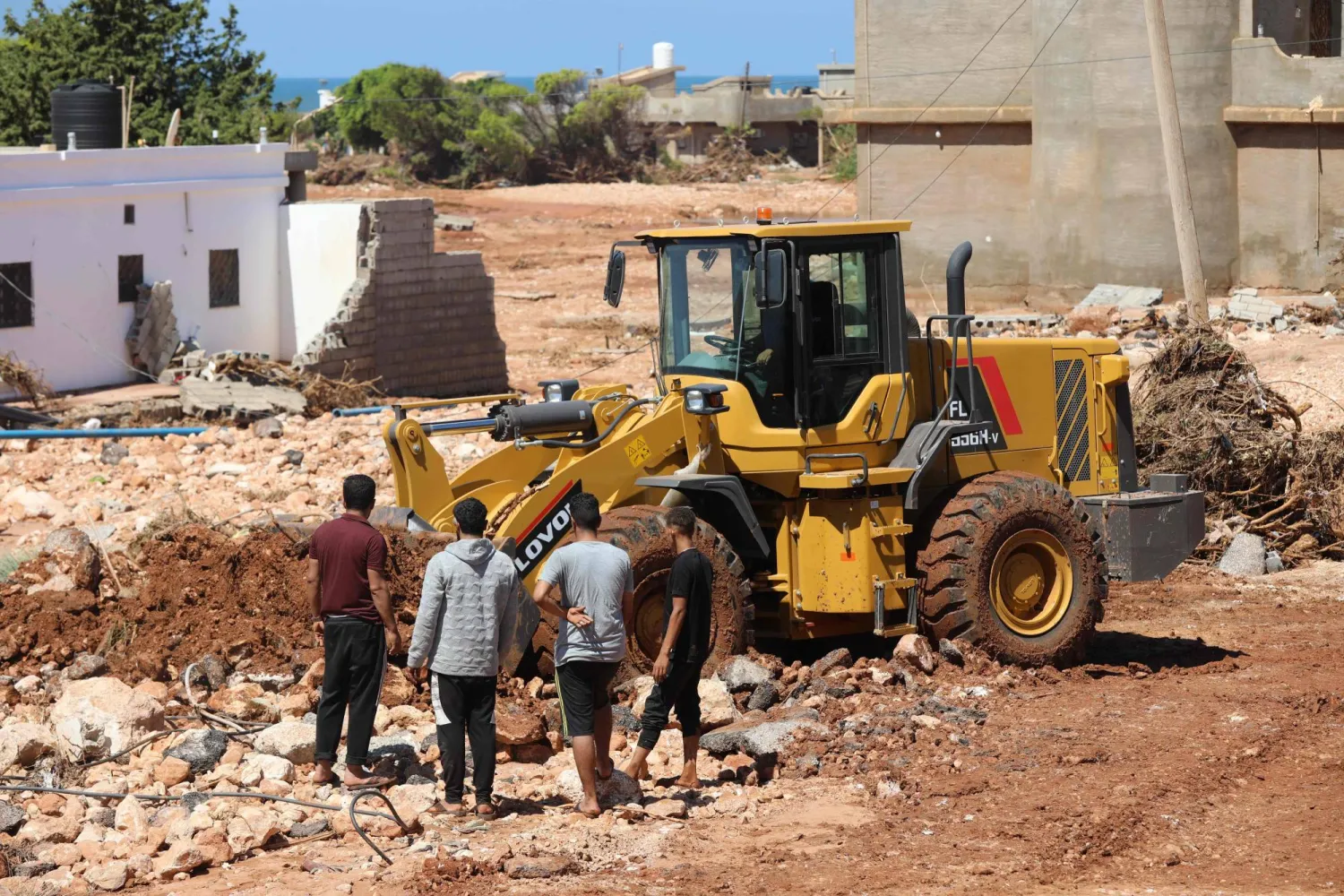A Syrian dentist, a confectioner who made mouthwatering Arabic sweets, a carpenter.
Syrians from all walks of life had left their war-torn country for the Libyan city of Derna over the past years, looking for work and better opportunities.
Now, dozens of them are missing and feared dead after Mediterranean storm Daniel unleashed catastrophic flooding that tore through the coastal city on Sunday night, wreaking destruction and washing entire neighborhoods out to sea.
The death toll has eclipsed 11,000 and more than 10,000 are missing. Five days on, searchers are still digging through mud and hollowed-out buildings in Derna, looking for bodies.
According to a war monitoring group, the Britain-based Syrian Observatory for Human Rights, 42 Syrians have been confirmed dead in Libya while the real number could be as high as 150.
The victims include both Syrians who were living and working in Libya long term, and Syrian migrants who were using Libya as a transit point in efforts to reach Europe, most often by way of perilous voyages across the Mediterranean Sea, in unsafe boats organized by smugglers.
Two years ago, Nisma Jbawi’s 19-year-old son Ammar Kanaan left their home in Syria’s southern province of Daraa — one of the epicenters of the 2011 uprising against the government of Syrian President Bashar Assad.
He headed to Libya, where he planned to work and save money to pay Syrian authorities a fee of about $8,000 that would spare him from compulsory military service.
Jbawi said her son last spoke with her on Sunday afternoon. He told her he would close the sweet shop where he worked and go home because a strong storm was expected. She tried repeatedly to call him on Monday, without success. His WhatsApp account shows his phone was last online at around 1:30 a.m. Monday.
“We still have hope,” she said, tears choking her up.
As the storm pounded Derna late Sunday, residents said they heard loud explosions when the dams outside the city collapsed. Floodwaters washed down Wadi Derna, a river running from the mountains through the city and into the sea.
On Tuesday, Kanaan’s uncle drove to Derna from the eastern Libyan city of Benghazi where he works — only to find that the building where his nephew lived had been washed out to sea.
“All who were inside are presumed dead,” Jbawi said.
Rami Abdurrahman, who runs the Observatory, said he has not been able to confirm a single survivor out of the 150 Syrians missing in Derna since Sunday night. But definite numbers are hard to come by in the chaotic aftermath of the destruction.
Like Syria, where the civil war has killed half a million people and forced more than 5 million to become refugees around the world, Libya as been through its own years of conflict.
The oil-rich North African country has been split between rival governments in the east and west since 2014, backed by with various militia forces and international patrons. Derna is governed by Libya’s eastern administration, where military commander Khalifa Haftar wields significant power.
Still, for some Syrians, Libya offered prospects of a better life. Syrians can easily get into Libya on a tourist visa and find work — wages are higher than what many earn at home.
Zeid Marabeh, 19, came to Libya two years ago from the central city of Homs and worked as a carpenter.
He recounted to The Associated Press over the phone from Derna how he watched water surging toward his building on Sunday night.
“Then I heard a loud boom,” Marabeh said. It was the moment the dams collapsed.
When water levels started rising in his neighborhood, he frantically ran toward higher ground — the nearby Eastern Shiha hill. From there, he saw the water destroy almost everything in its path.
He went back on Monday morning, after the waters subsided, to check on his uncle and relatives. The building where they lived had disappeared. His uncle, Abdul-Ilah Marabeh, his aunt Zeinab and their 1-year-old daughter Shahd were gone, he said.
Marabeh said he looked through the rows of bodies laid out on their street but could not find his uncle’s family.
In the Syrian capital of Damascus on Thursday, members of the Qalaaji family were receiving condolences for their eight family members killed in Derna.
Firas Qalaji, his wife Rana Khateeb and their six children were to be buried in Libya, the family said in a statement.
Ghina al-Qassim said her nephew, Hani Turkomani, was a dentist who arrived in Derna some nine months ago “to improve his life.” His cousins, already there, had found him a job.
After the floodwaters subsided, the cousins, who survived the tragedy, went looking for him. They said his apartment was full of water and mud but a large hole in the wall raised their hopes that he might have escaped from the building or been pulled out by rescue workers, al-Qassim said.
“God willing,” she added.









